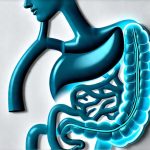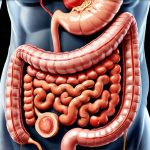As we age, changes occur within our bodies – some subtle, others more pronounced. These transformations aren’t necessarily negative; they are simply part of the natural aging process. One area significantly impacted by these changes is our digestive system. Often overlooked, the slowdown in digestive speed and increased sensitivity to food volume can profoundly affect quality of life, leading to discomfort, bloating, and altered eating habits. Understanding why this happens and how it affects us is crucial for adapting our lifestyles and maintaining optimal health as we grow older.
The aging process isn’t a sudden event but rather a gradual accumulation of changes over time. This impacts the entire digestive tract, from the mouth to the colon. Reduced muscle tone in the esophagus can lead to slower swallowing and increased risk of heartburn. The stomach produces less acid, potentially hindering nutrient absorption and increasing susceptibility to bacterial overgrowth. Perhaps most noticeably, the intestines slow down their movement – a phenomenon known as age-related gastrointestinal motility decline – meaning food takes longer to process and transit through the system. This slowdown contributes directly to increased sensitivity to heavier meals and can trigger digestive discomfort for many seniors. Understanding how gut health affects overall well-being is paramount as we age.
The Slowing Digestive Tract: A Deeper Look
The decrease in digestive speed is multifaceted, stemming from both physiological changes and potential lifestyle factors. Firstly, there’s a natural decline in peristalsis, the wave-like muscle contractions that move food along the digestive tract. As we age, the muscles responsible for these contractions become weaker and less frequent. This isn’t just about intestinal motility; it affects every stage of digestion. Reduced saliva production can make chewing and initial breakdown more difficult, while decreased stomach acid impacts protein digestion and nutrient absorption. Secondly, changes in the enteric nervous system – often referred to as the “second brain” because of its complex network of neurons controlling digestive function – contribute to this slowdown. With age, nerve cells may diminish or become less responsive, further impacting coordination of digestive processes.
Beyond these inherent physiological shifts, certain medications commonly prescribed to older adults can also slow down digestion. These include opioids, anticholinergics, and some antidepressants. Chronic health conditions like diabetes and hypothyroidism can similarly affect gut motility. Finally, a decrease in physical activity – unfortunately common among seniors – exacerbates the problem, as exercise naturally stimulates digestive function. The combined effect of these factors results in prolonged transit time, leading to increased fermentation in the colon and potential for gas, bloating, and constipation. This highlights the importance of considering food rotation as a strategy to mitigate digestive issues.
Increased Sensitivity to Heavier Meals
As digestion slows, the body’s ability to effectively process large meals diminishes. This leads to heightened sensitivity to heavier meals, especially those rich in fat or fiber. When food remains in the stomach longer, it can cause feelings of fullness and discomfort even after consuming relatively small portions. The prolonged presence of undigested food also creates a breeding ground for gas-producing bacteria, resulting in bloating and abdominal distension. This isn’t simply about feeling uncomfortable; it can significantly impact daily activities and social interactions. Older adults may find themselves avoiding certain foods or limiting portion sizes to prevent digestive distress, potentially leading to nutritional deficiencies if not managed carefully.
The increased sensitivity also manifests as a quicker onset of symptoms after eating. What once might have been a perfectly tolerable meal could now trigger immediate discomfort. This is because the delayed gastric emptying means the stomach stretches more and for a longer duration, activating sensory nerves that signal fullness and discomfort to the brain. Furthermore, the impaired ability to break down food efficiently means the intestines are working harder to process larger particles, contributing to overall digestive strain. A key element here is recognizing this change – acknowledging that what worked in younger years may no longer be true as we age. Proper posture can also help; learning how to improve posture during and after meals can make a difference.
Dietary Adjustments for Enhanced Digestion
Making mindful dietary adjustments can significantly alleviate discomfort and improve digestive function in older adults. – Smaller, more frequent meals: Instead of three large meals per day, opt for five or six smaller portions. This reduces the burden on the digestive system and minimizes bloating. – Low-fat diet: Fat slows down digestion; reducing fat intake can ease symptoms. Choose lean proteins, baked instead of fried foods, and limit creamy sauces. – Fiber moderation: While fiber is essential, excessive amounts can exacerbate gas and bloating in a slow-moving gut. Gradually increase fiber intake while ensuring adequate hydration. – Hydration is key: Drinking plenty of water throughout the day helps soften stool and promotes regular bowel movements. Aim for at least eight glasses of water daily.
It’s also important to identify and avoid trigger foods. Common culprits include: Cruciferous vegetables (broccoli, cauliflower, cabbage) – known gas producers – Carbonated beverages – can cause bloating – Artificial sweeteners – often poorly absorbed and can lead to digestive upset – High-fat dairy products – difficult to digest for many seniors. Keeping a food diary can help pinpoint specific sensitivities. Considering frequent snacking habits is also important, as they impact gut bacteria and digestive rhythm.
The Role of Physical Activity
Regular physical activity plays a vital role in maintaining healthy digestion, even as we age. Exercise stimulates peristalsis, helping food move through the digestive tract more efficiently. It also strengthens abdominal muscles, which support digestive organs and improve bowel function. – Walking: A simple yet effective exercise that promotes gut motility. Aim for at least 30 minutes of brisk walking most days of the week. – Yoga & Pilates: Gentle stretching exercises can improve muscle tone and reduce stress, both beneficial for digestion. – Strength training: Building muscle mass boosts metabolism and supports overall digestive health.
Even moderate activity levels can make a difference. The key is to find activities that are enjoyable and sustainable. Consistency is more important than intensity when it comes to reaping the benefits of exercise for digestive health. It’s also crucial to discuss any new exercise regimen with a healthcare professional, especially if underlying health conditions exist. In fact, the gut can even affect our motivation to move and engage in physical activity!
Consulting Healthcare Professionals
Persistent digestive issues should never be ignored. While dietary and lifestyle adjustments can often provide relief, it’s essential to consult with a healthcare provider – either a primary care physician or a gastroenterologist – to rule out any underlying medical conditions. They can accurately diagnose the cause of your symptoms and recommend appropriate treatment options. This might include: Medication review: Identifying medications that may be contributing to digestive problems – Diagnostic testing: Ruling out conditions like lactose intolerance, celiac disease, or irritable bowel syndrome – Personalized dietary plan: Developing a customized eating strategy tailored to individual needs and sensitivities.
Remember that aging is a natural process, and changes in digestion are common. However, proactively addressing these changes through mindful lifestyle choices and professional guidance can significantly enhance quality of life and allow you to enjoy food without discomfort or worry. A collaborative approach – involving both self-care strategies and medical expertise – is the most effective way to navigate this aspect of healthy aging. Understanding hormonal birth control impacts on digestive stability can also be crucial, especially for women.


















